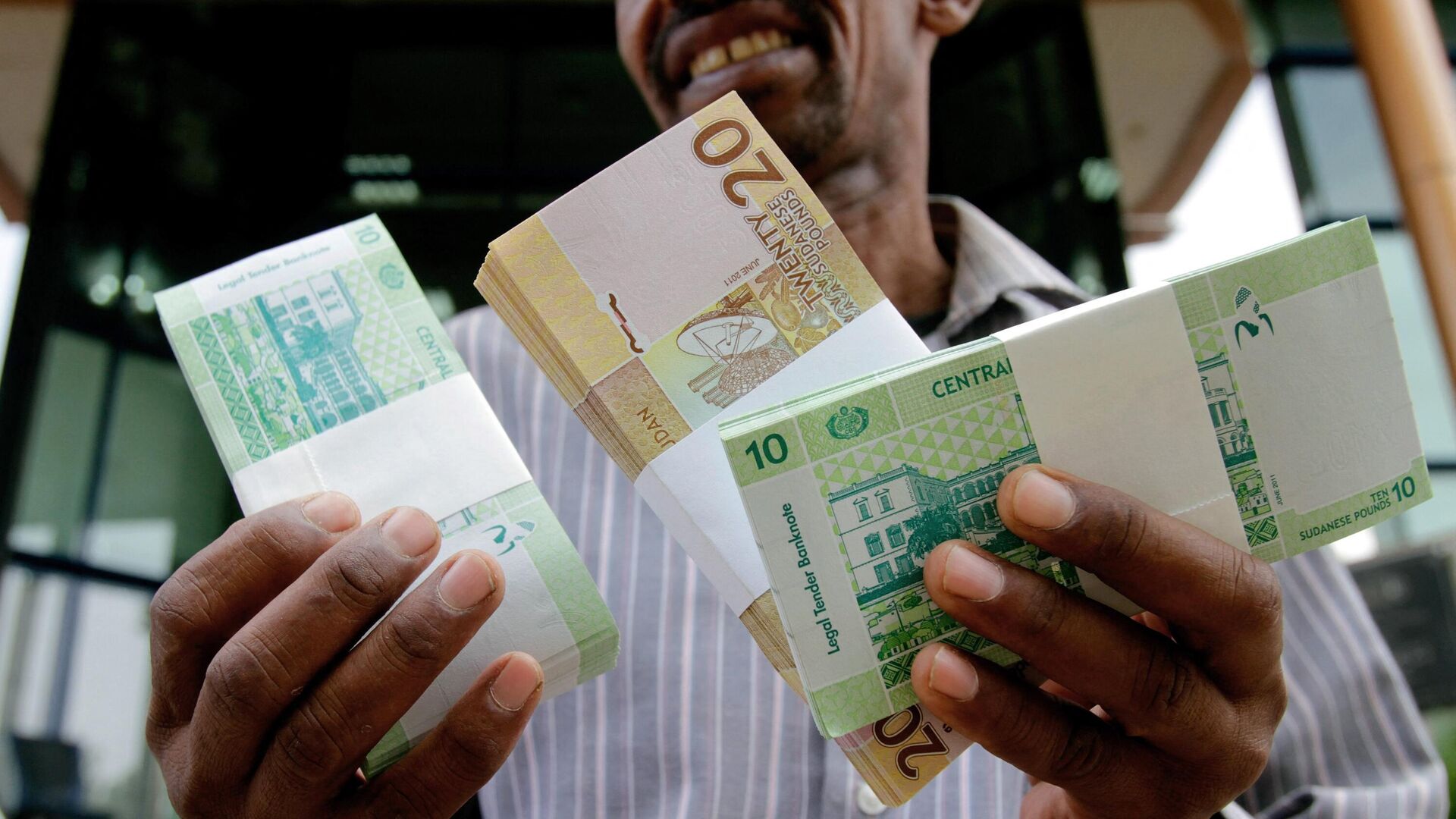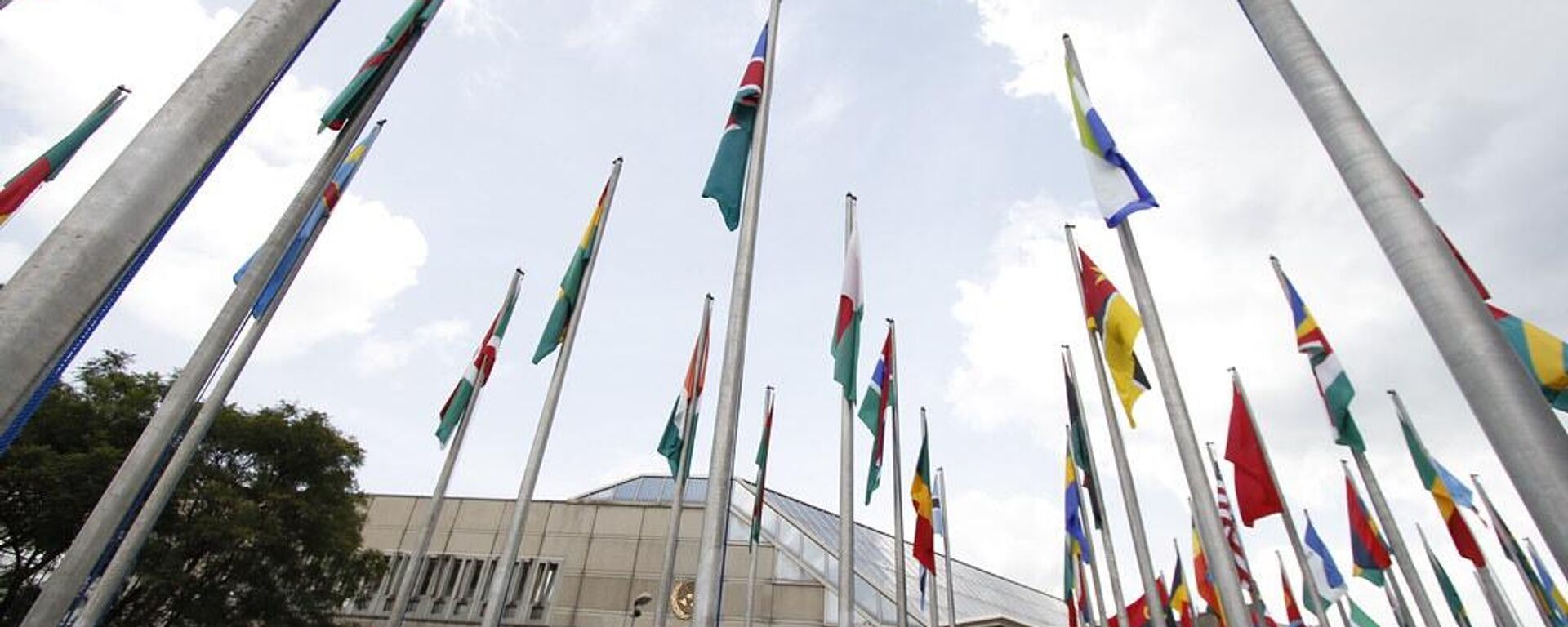https://en.sputniknews.africa/20240423/historic-move-creating-african-cra-allows-shaping-narrative-on-risk--investment-expert-says-1066201851.html
'Historic' Move: Creating African CRA Allows 'Shaping Narrative' on Risk & Investment, Expert Says
'Historic' Move: Creating African CRA Allows 'Shaping Narrative' on Risk & Investment, Expert Says
Sputnik Africa
Last year, the Technical Committee of Finance Ministers of the African Union adopted a declaration of support for the African Credit Rating Agency (CRA) on the... 23.04.2024, Sputnik Africa
2024-04-23T18:52+0200
2024-04-23T18:52+0200
2024-04-24T14:47+0200
opinion
economy
african union (au)
sputnik africa
debt
finance
funding
west
united nations (un)
africa insight
https://cdn1.img.sputniknews.africa/img/07e8/03/1f/1065850676_0:181:2995:1866_1920x0_80_0_0_e77674a35b03345662091dc75d9ce7a0.jpg
The creation of a continental credit rating agency by the African Union (AU) is "historic," as the existing system for assessing the creditworthiness of countries is "flawed" and "unfair" and thus negatively impacts the growth of African countries, Etsehiwot Negash Kebret, Development Finance Advisor at Development Reimagined consultancy, told Sputnik Africa.Kebret explained that international CRAs use variables such as a country's export composition and concentration, inflation rate, a country's history of defaults, and its level of economic development, which inevitably puts African countries at a disadvantage and therefore makes financing more expensive for them, and also creates the impression that investing in African countries is risky. Moreover, 22 African states (that is, 40% of all countries on the continent) don't even have any credit ratings.Thus, the African CRA can help "shape the narrative around risk and investment," thereby helping to increase investor confidence and unlock greater funding volumes.However, despite the fact that the AU has developed "a solid framework" for the agency establishment, there's still quite some work to be done that might be hindered by a "pushback from well-established agencies."Lastly, the expert outlined the positive impact of the agency on the financial stability of both the continent and the individual countries, which consists of obtaining more financing and easier debt servicing, among other things.
https://en.sputniknews.africa/20240414/un-economic-commission-for-africa-meets-to-push-for-creation-of-african-credit-rating-agency-1066059370.html
west
zambia
Sputnik Africa
feedback@sputniknews.com
+74956456601
MIA „Rossiya Segodnya“
2024
Christina Glazkova
https://cdn1.img.sputniknews.africa/img/07e7/0b/07/1063380906_0:0:673:674_100x100_80_0_0_79628b4d0cd9f29291a57aa13bbf9e7a.jpg
Christina Glazkova
https://cdn1.img.sputniknews.africa/img/07e7/0b/07/1063380906_0:0:673:674_100x100_80_0_0_79628b4d0cd9f29291a57aa13bbf9e7a.jpg
News
en_EN
Sputnik Africa
feedback@sputniknews.com
+74956456601
MIA „Rossiya Segodnya“
Sputnik Africa
feedback@sputniknews.com
+74956456601
MIA „Rossiya Segodnya“
Christina Glazkova
https://cdn1.img.sputniknews.africa/img/07e7/0b/07/1063380906_0:0:673:674_100x100_80_0_0_79628b4d0cd9f29291a57aa13bbf9e7a.jpg
economy, african union (au), sputnik africa, debt, finance, funding, west, united nations (un), africa insight, zambia, agenda 2063
economy, african union (au), sputnik africa, debt, finance, funding, west, united nations (un), africa insight, zambia, agenda 2063
'Historic' Move: Creating African CRA Allows 'Shaping Narrative' on Risk & Investment, Expert Says
18:52 23.04.2024 (Updated: 14:47 24.04.2024) Christina Glazkova
Writer / Editor
Last year, the Technical Committee of Finance Ministers of the African Union adopted a declaration of support for the African Credit Rating Agency (CRA) on the basis of self-financing and sustainability. In April, the UN Economic Commission for Africa and the African Peer Review Mechanism organized a retreat in Zambia on the creation of the CRA.
The creation of a continental credit rating agency by the
African Union (AU) is "historic," as the existing system for assessing the creditworthiness of countries is "flawed" and "unfair" and thus negatively impacts the growth of African countries,
Etsehiwot Negash Kebret, Development Finance Advisor at Development Reimagined consultancy, told
Sputnik Africa.
"The AU's decision to establish an African CRA is historic, and this move was made by the AU, as African countries have continuously received unfair credit ratings as a result of a very biased and very flawed system. This system has had a negative impact on the growth and development of African nations," the expert said.
Kebret explained that international CRAs use variables such as a country's export composition and concentration,
inflation rate, a country's history of
defaults, and its level of
economic development, which inevitably puts African countries at a disadvantage and therefore makes financing more expensive for them, and also creates the impression that investing in African countries is risky. Moreover, 22 African states (that is,
40% of all countries on the continent) don't even have any credit ratings.
Thus, the African CRA can help "shape the narrative around risk and
investment," thereby helping to increase investor confidence and unlock greater funding volumes.
"These ratings mostly affect external perception on the risk of investing in African countries. This is referred to as the African risk premium. Having our own CRA means that we can shape the narrative around risk and investment, and this will ultimately promote greater investor confidence and open up larger amounts of financing that will enable African governments’ greater access to capital and integrate the continent within the larger global financial system," the advisor pondered.
However, despite the fact that the AU has developed "a solid framework" for the agency establishment, there's still quite some work to be done that might be hindered by a "pushback from well-established agencies."
"However, we still have a long way to go to make this operational and to start seeing the fruits of this initiative. And as with many new initiatives that sort of challenge the status quo, I would expect some pushback from well-established agencies. But that should be something that is expected and something we prepare for, and we should not allow that to deter us from work," Kebret warned.
Lastly, the expert outlined the positive impact of the agency on the financial stability of both the continent and the individual countries, which consists of obtaining more financing and easier
debt servicing, among other things.
"Remember that Africa as a whole is the eighth-largest economy in the world. This will mean that African countries will have access to not only more finance but also cheaper finance, and that will enable countries to easily service their debt and also put that money in growth-producing sectors that will have a positive impact on their individual economies, but also the continent as a whole, which will create stability and help the continent achieve Agenda 2063," the guest concluded.



